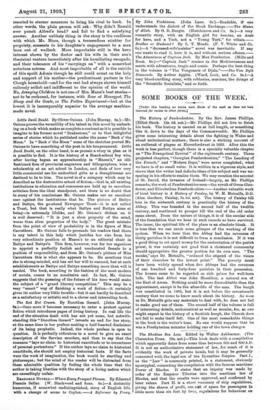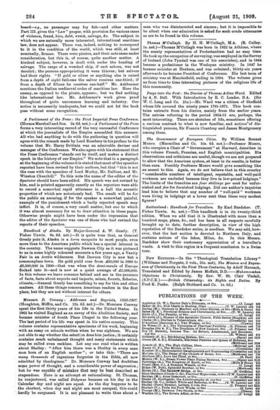The Rhodian Sea Law. Edited by Walter Ashburner. (The Clarendon
Press. 18s. net.)—This book deals with a compilation which apparently dates from some time between 600 and 800 A.D. It is not an authoritative statement of law, for much of it is evidently the work of private hands, but it may be generally connected with the legal era of the Byzantine Empire. Part I., as the "Law" is commonly printed, is a statement, obviously apocryphal, connecting the compilation with the famous maritime Power of Rhodes. It states that an inquiry was made by order of the Emperor Tiberius into the maritime law of Rhodes, and that the results were approved, and confirmed by later rulers. Part IL is a short summary of ship regulations, giving the shares of profit, arno.int of space for passenger e (a little more than six feet by two), regulations for behaviour on board—e.g., no passenger may fry fish—and other matters. Part III. gives the "Law" proper, with provision for various cases of violence, fraud, hire, debt, wreck, salvage, &c. The subject in which wo are naturally more interested, international maritime law, does not appear. There was, indeed, nothing to correspond to it in the condition of the world, which was still, at least nominally, Roman. There were pirates, and their acts came under consideration, but this is, of course, quite another matter. A kindred subject, however, is dealt with under the heading of salvage. The cargo of a wrecked ship, if cast ashore, was not derelict ; the persons appropriatiug it were thieves ; but salvors had their rights. "If gold or silver or anything else is raised from a depth of eight fathoms the salvor receives one-third; if from a depth of fifteen he receives one-half." Mr. Ashburner mentions the Italian mediaeval codes of maritime law. Here the enemy, as opposed to the pirate, appears ; but we find nothing like international law. Mr. Ashburner's work gives proof throughout of quite uncommon learning and industry. Our notice is necessarily inadequate, but we could not let the book pass without some recognition.







































 Previous page
Previous page